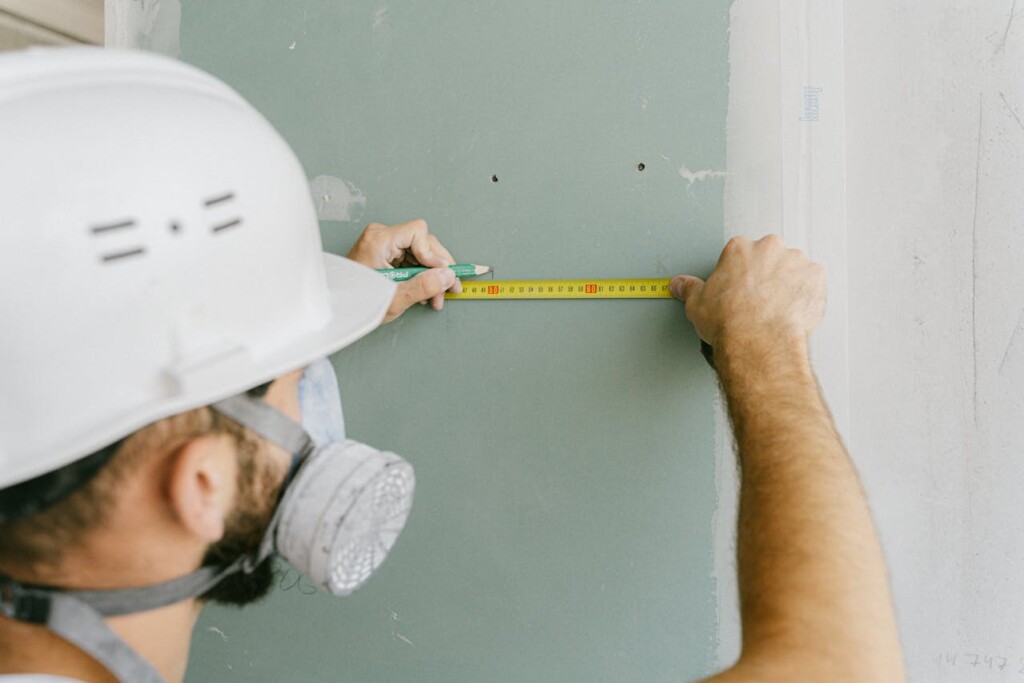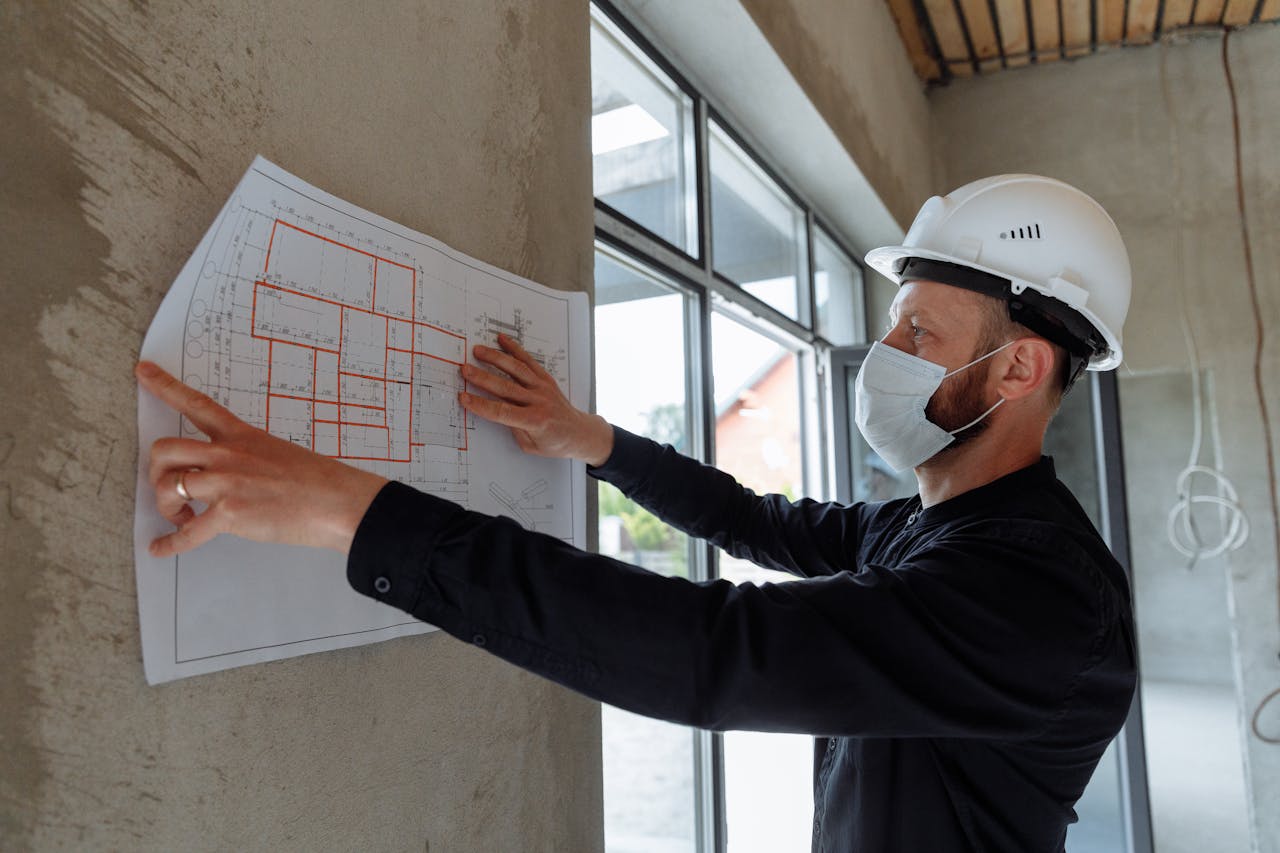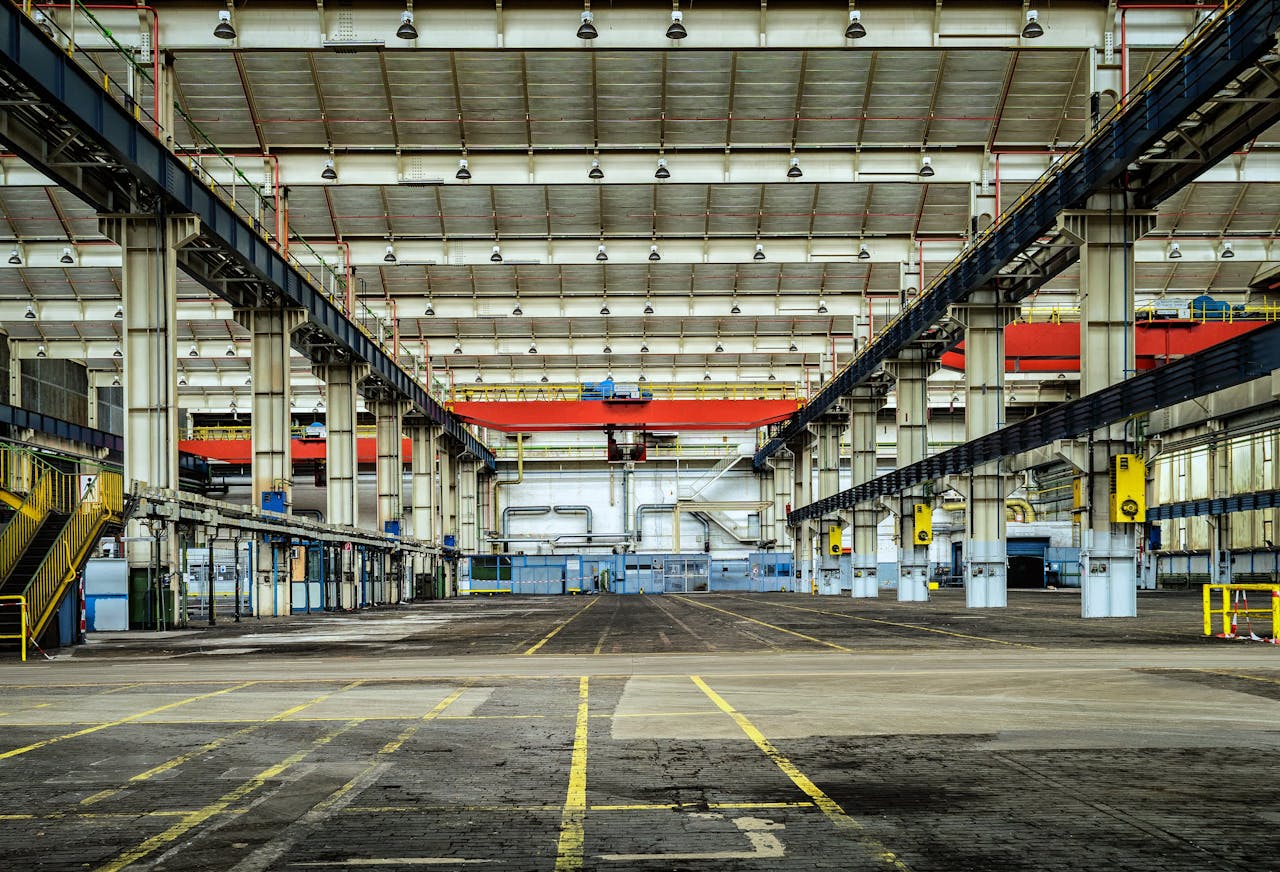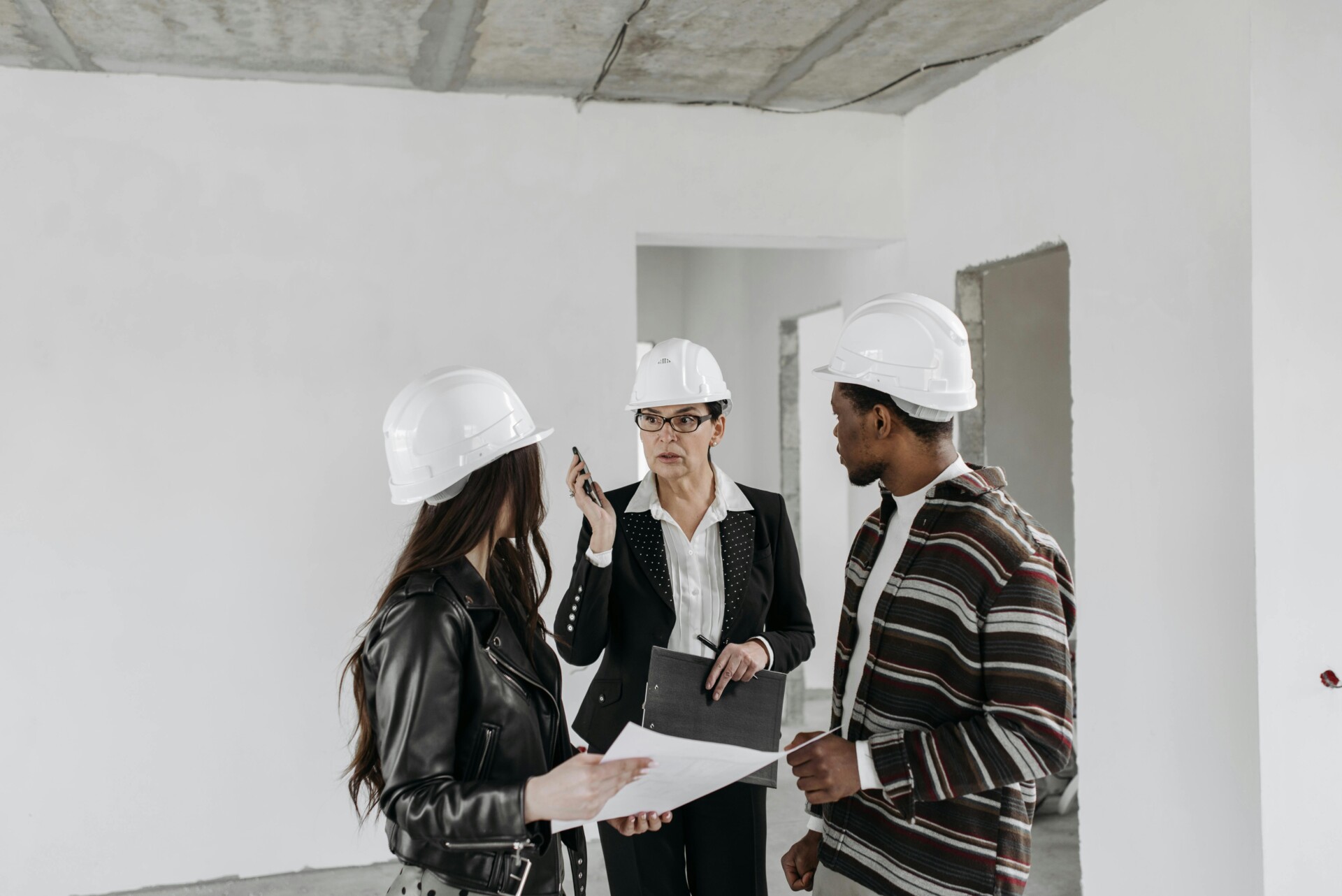Dallas–Fort Worth leads Texas in commercial construction activity, with contractors managing billions in development annually. DFW commercial contractors plan, build, and improve commercial spaces across one of the nation’s fastest-growing metropolitan areas.
These teams deliver comprehensive services including general contracting, construction management, design-build, preconstruction, estimating, scheduling, and maintenance. Property owners and developers can access support for new builds, renovations, tenant improvements, and ongoing facility needs throughout the region’s diverse markets.
Which Services And Delivery Methods Are Available?

Commercial construction services in Dallas-Fort Worth span fundamental building activities and specialized support functions. New commercial buildings anchor most service menus, alongside renovations, alterations, and interior fit-outs that transform existing spaces. Commercial service work and repairs round out core offerings that keep facilities operational.
Advanced services extend beyond basic construction. Building performance solutions optimize energy efficiency and operational costs throughout a building’s lifecycle. Virtual design & construction uses BIM technology to coordinate multidisciplinary layers and reduce field conflicts. Structural and soils support addresses foundation challenges common in blackland prairie conditions.
Quality Assurance And Technical Services
Quality assurance and quality control (QA/QC) programs verify construction meets design intent and code requirements. These programs establish inspection protocols, material testing procedures, and documentation standards that protect owners from defects and compliance issues.
Commissioning services ensure building systems operate as designed before turnover. Teams test HVAC, electrical, plumbing, and fire protection systems to verify performance against specifications. MEP services integrate mechanical, electrical, and plumbing coordination throughout design and construction phases.
Sustainability practices help projects achieve LEED certification and energy efficiency goals. We incorporate sustainable materials, waste reduction strategies, and renewable energy systems when project requirements support these approaches.
Project Delivery Methods
General construction remains the traditional approach where we coordinate all trades and activities under a single contract. This method provides owners with clear accountability and unified project management from mobilization through completion.
Design-build combines architectural and engineering services with construction under one contract. This delivery method accelerates project timelines by allowing construction to begin before design completion. We lead design-build teams that integrate constructability input during early design phases.
Construction management positions us as the owner’s agent throughout project phases. We provide cost control, schedule management, and quality oversight while trade contractors work under separate agreements. Construction Manager at Risk (CMAR) adds guaranteed maximum price protection to construction management services.
Integrated Project Delivery (IPD) contractually requires collaboration among owner, designer, and builder from project inception. Risk, responsibility, and liability distribute across all parties through shared incentive structures. Design-bid-build follows the traditional sequence of complete design, competitive bidding, and construction award.
EPC (Engineering, Procurement, Construction) services support manufacturing and industrial projects that require integrated engineering design, equipment procurement, and construction delivery. These projects often involve process equipment, utility systems, and specialized infrastructure that demand coordinated technical expertise.
What Markets And Building Types Do DFW Commercial Contractors Cover?
Commercial contractors across Dallas-Fort Worth handle diverse market sectors that reflect the region’s economic strength. Office construction drives significant activity, from corporate headquarters to financial services buildings. Healthcare facilities span hospitals, medical office buildings, and specialized clinics. We coordinate K–12 school construction and higher education campus projects that require complex scheduling around academic calendars.
Manufacturing and warehousing projects dominate industrial construction throughout DFW. Distribution centers serve the region’s logistics hub role while life sciences facilities support the growing biotech sector. Retail construction covers everything from shopping centers to individual restaurants. Hotel development continues as business travel and tourism expand.
Specialized Market Sectors
Aviation projects at DFW International Airport and regional facilities demand specialized expertise. Mixed-use developments combine residential, retail, and office space in single projects. Multifamily construction ranges from luxury apartments to affordable housing complexes. Senior living facilities require unique design considerations for accessibility and healthcare integration.
Self storage facilities represent growing demand for commercial space. Childcare centers must meet strict safety and design requirements. Sports and recreation facilities include everything from fitness centers to professional venues. Cultural buildings like museums and performing arts centers bring unique structural challenges.
Building System Options
Tilt wall construction provides cost-effective solutions for industrial and retail projects. We pour concrete walls on-site, then tilt them into position using specialized equipment. Precast concrete offers durability and speed for larger commercial buildings. Factory-manufactured panels arrive ready for installation, reducing weather delays.
Wood-framed construction works well for smaller office buildings and mixed-use projects. Pre-engineered metal buildings (PEMB) deliver fast construction for warehouses and manufacturing facilities. These systems use standardized components that reduce both cost and schedule. Tensioned membrane fabric structures serve specialized applications like sports facilities and aircraft hangars.
Project types span the full construction spectrum. New construction starts from ground-up development. Renovations update existing buildings for current needs. Tenant improvements customize spaces for specific businesses. Facility maintenance keeps buildings operating efficiently after completion. Building expansions add capacity to growing operations without full relocation.
How Do DFW Commercial Contractors Structure The Project Lifecycle?

DFW commercial contractors organize their project lifecycle around three distinct phases: preconstruction, construction, and post-construction. Each phase involves specific activities that build upon the previous work and prepare for the next stage. We structure our approach to ensure seamless transitions between phases while maintaining quality and schedule integrity.
Preconstruction Phase Activities
Preconstruction begins with comprehensive project planning and budgeting. We assess site conditions, analyze design requirements, and establish preliminary cost frameworks. Real-time estimating allows us to adjust budgets as design details evolve, preventing costly surprises later in the process.
Value engineering represents a critical component of our preconstruction work. We review design elements to identify cost-saving opportunities without compromising functionality or quality. Our teams evaluate materials, systems, and construction methods to optimize project value for owners.
Scheduling during preconstruction involves creating detailed timelines that account for design development, permitting, procurement, and construction activities. We coordinate with design teams and regulatory agencies to establish realistic milestones. Building comprehensive bidder lists ensures we engage qualified trade partners who understand project requirements and can deliver on schedule.
Procurement coordination starts early in preconstruction as we identify long-lead items and specialty materials. We work with suppliers to secure pricing and delivery schedules that align with construction timelines. This proactive approach prevents delays during the active construction phase.
Construction Phase Management
Once construction begins, our focus shifts to field operations and quality control. Safety management becomes our top priority as we implement site-specific safety plans and conduct regular training sessions. We maintain safety protocols that protect workers and comply with OSHA regulations.
Quality assurance and quality control (QA/QC) programs run throughout construction. We conduct regular inspections, document progress, and verify that work meets specifications. Our QA/QC processes catch issues early when corrections cost less and cause fewer schedule impacts.
MEP coordination requires careful attention as mechanical, electrical, and plumbing systems integrate with structural elements. We use technology-enabled workflows to track installations and resolve conflicts before they affect other trades. Building Information Modeling (BIM) helps us visualize system interactions and optimize installation sequences.
Technology integration extends beyond BIM to include project management software, mobile reporting tools, and real-time progress tracking. These systems improve communication between field and office teams while providing owners with current project status information.
Post-Construction And Turnover Services
Commissioning and building performance verification occur as construction nears completion. We test all building systems to ensure they operate according to design specifications. Commissioning includes equipment startup, performance testing, and operator training to prepare facilities for occupancy.
Post-construction services extend our relationship with owners beyond project turnover. Facility solutions include ongoing maintenance programs, emergency repair services, and system optimization. We provide concrete repairs, routine maintenance, and facility upgrades as buildings age and requirements change.
Our post-construction support helps owners maximize their investment through proactive maintenance and quick response to facility issues. These services ensure buildings continue operating efficiently while protecting long-term asset value.
What Should Owners Evaluate When Selecting A DFW Commercial Contractor?
Delivery Method Alignment
The delivery method directly impacts project control, risk distribution, and cost outcomes. Design-build offers single-point responsibility and faster schedules, making it suitable for owners seeking streamlined decision-making. CMAR provides transparency through open-book pricing while transferring construction risk to the contractor. Construction management maintains owner control over trade contracts but requires more hands-on involvement. Design-bid-build delivers clear cost certainty upfront but extends timelines through sequential phases.
We evaluate each owner’s risk tolerance and project complexity before recommending an approach. Time-sensitive developments often benefit from design-build integration, while complex institutional projects may require the oversight that construction management provides. The key lies in matching your team’s capacity and comfort level with the delivery method’s demands.
Market Experience And Building System Expertise
Contractors bring specialized knowledge from repeated exposure to specific markets and construction methods. Healthcare projects demand infection control protocols that differ significantly from office construction requirements. Industrial facilities require understanding of equipment integration and process flows that residential contractors rarely encounter.
Building system expertise proves equally critical. Tilt wall construction involves precise panel coordination and crane logistics that differ from precast concrete sequencing. PEMB projects require manufacturer coordination and erection scheduling unique to metal building systems. Fabric structures demand specialized tensioning and weather protection knowledge. We assess each contractor’s depth in your specific building type and verify their understanding through recent project examples and team credentials.
Preconstruction Capabilities Assessment
Strong preconstruction capabilities separate experienced contractors from those simply responding to bid requests. Real-time estimating allows cost tracking throughout design development, preventing budget surprises at bid time. Value engineering identifies cost-effective alternatives without compromising project goals. Comprehensive scheduling reveals critical path dependencies and identifies potential conflicts before construction begins.
We examine how contractors structure their preconstruction teams and what tools they employ for cost modeling and schedule analysis. The depth of their involvement during design phases often determines construction phase success. Contractors who engage meaningfully in preconstruction typically deliver more predictable outcomes and fewer change orders.
Safety Program And QA/QC Standards
Safety programs reflect operational discipline and risk management maturity. Experience Modification Rates (EMR) below 1.0 indicate better-than-average safety performance, while comprehensive training programs demonstrate ongoing commitment. Regular safety meetings, toolbox talks, and incident reporting systems show systematic approaches to hazard prevention.
QA/QC programs ensure construction quality meets design intent and building codes. We look for documented inspection protocols, material testing procedures, and corrective action processes. Third-party commissioning capabilities add verification layers for mechanical and electrical systems. These programs become especially important for mission-critical facilities where system failures create significant operational disruption.
MEP Coordination And Commissioning
Mechanical, electrical, and plumbing coordination determines system performance and long-term operational efficiency. Contractors who maintain strong relationships with MEP subcontractors typically resolve conflicts faster and achieve better system integration. Building Information Modeling (BIM) coordination identifies clashes before installation, reducing field conflicts and rework.
Commissioning capabilities ensure systems operate as designed before occupancy. This process includes equipment startup, system balancing, and performance verification. We evaluate contractors’ commissioning experience and their ability to coordinate with specialty commissioning agents when required. Proper commissioning prevents costly system adjustments after occupancy and extends equipment life.
Project Team Skills And Communication
Project management capabilities determine day-to-day execution quality and stakeholder coordination. Strong project managers maintain clear communication channels, track progress against schedules, and resolve issues before they impact other trades. Problem-solving skills become critical when unexpected conditions arise or design conflicts surface during construction.
Communication practices affect every project relationship. We assess how contractors structure project meetings, distribute information, and maintain transparency with owners and design teams. Time management skills ensure critical decisions receive proper attention while maintaining construction momentum. These soft skills often differentiate successful projects from problematic ones more than technical capabilities alone.
Trade Partner Prequalification And Bidder Strategy
Trade partner prequalification reflects contractor standards and risk management practices. Rigorous prequalification processes verify subcontractor financial stability, safety records, and technical capabilities. Established bidder lists with qualified trades typically produce more competitive pricing and reliable performance.
We examine how contractors evaluate and maintain their trade partner relationships. Long-term partnerships often result in better coordination and problem-solving during construction. However, competitive bidding processes ensure market pricing and prevent complacency. The balance between relationship management and competitive procurement indicates contractor sophistication and commitment to owner value.
Conclusion and Next Steps

Successful commercial construction starts with clear definition of scope, budget, and schedule parameters. Choose a construction delivery method that aligns with your project goals and risk tolerance. Focus your search on DFW commercial contractors with demonstrated experience in your specific market segment and building type.
When issuing RFQ or RFP documents, evaluate more than just price. Compare preconstruction planning depth, safety programs, QA/QC processes, and commissioning capabilities across potential teams. Confirm alignment on technology platforms, MEP coordination approaches, and post-construction support before making your final selection. These systematic steps help owners navigate from initial concept through successful turnover with fewer surprises and better outcomes.
Ready to start your commercial construction project in the DFW area? Contact EB3 Construction to discuss how we can support your project from preconstruction planning through commissioning and beyond.




